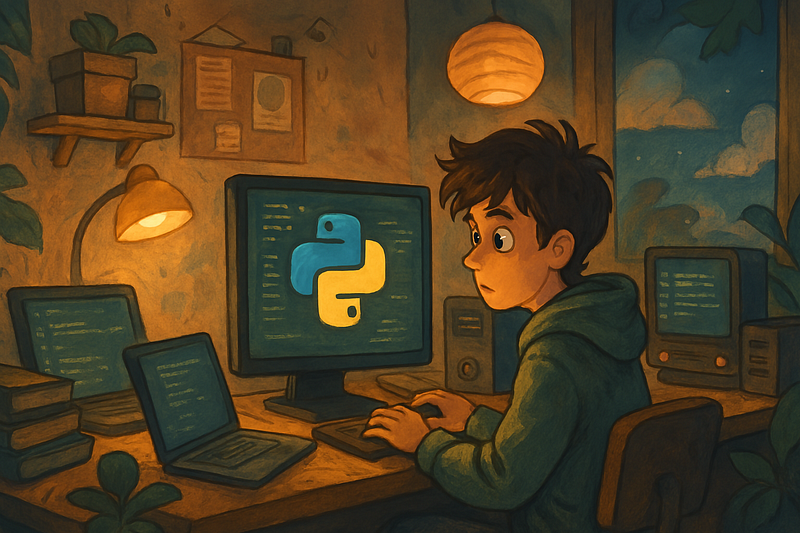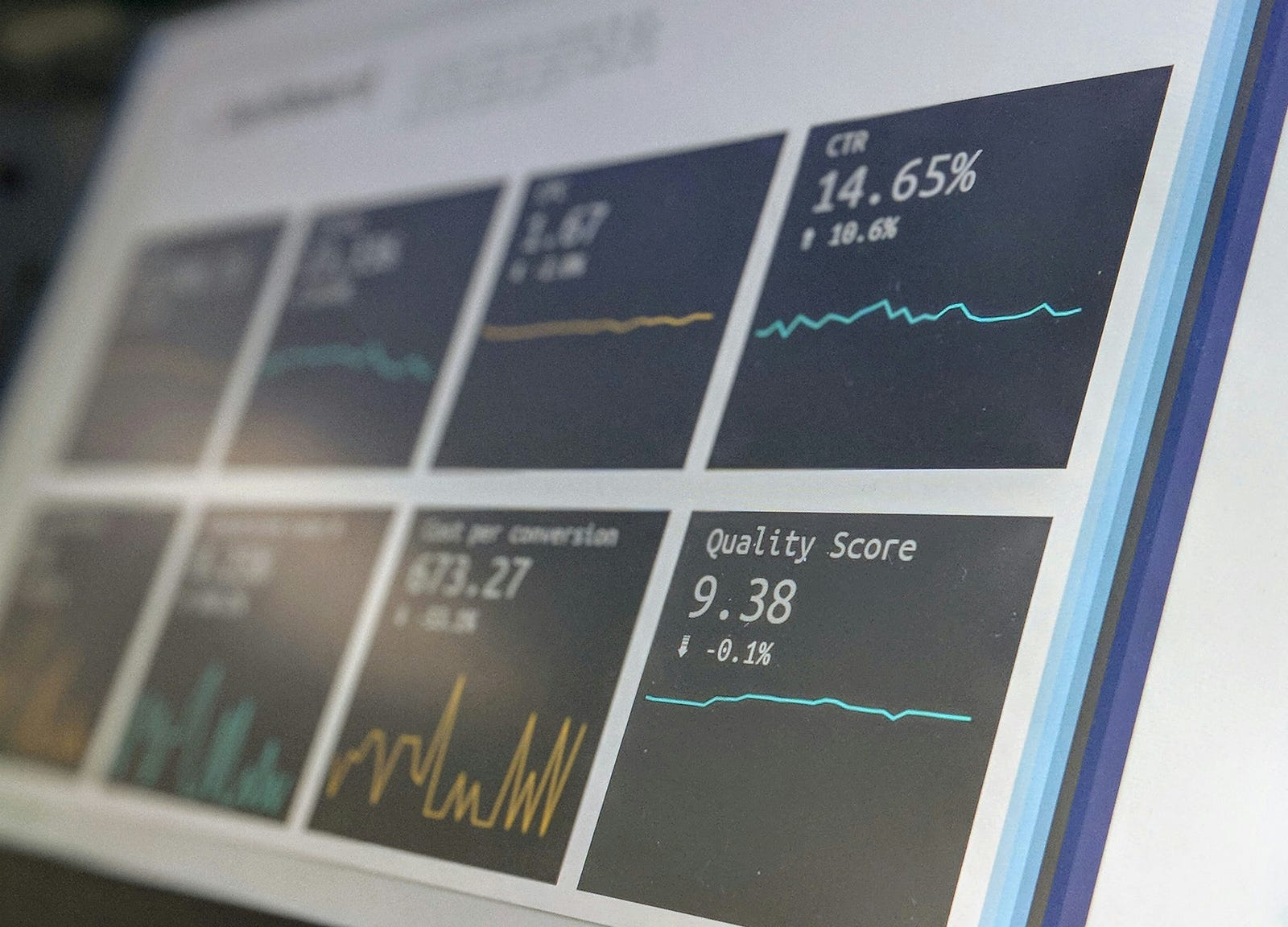
· By Daniel Builescu
How to Build a Python Project in 2025 That Isn’t Boring, Useless, or Already Done 1,000 Times
A few months ago, I reviewed a junior developer’s portfolio. Three projects: a to-do list app, a calculator, and — of course — a random password generator. They worked. They were functional. But they were also… forgettable.
Here’s the truth no one tells beginners:
You don’t stand out by following tutorial #104 on “Building a CRUD app.”
You stand out by solving a real problem. Or at least pretending to.
This article is your escape route. Not into something revolutionary, necessarily — but into something original enough to make people pause and say, “Huh. That’s actually cool.”
Let’s break it down. How to build something in Python, in 2025, that feels worth building.
🚫 Stop Chasing Project Templates That Everyone’s Already Cloned
You Google “best Python projects for beginners”. You get blog posts with the same 20 ideas:
- Calculator
- BMI calculator
- Currency converter
- Weather app using OpenWeatherMap API
- YouTube video downloader
- Tic-tac-toe
You start one. You copy-paste code. It runs. You smile.
Then you move on.
Then you forget everything.
Then it repeats.
Here’s the thing: your brain isn’t wired to retain passive repetition.
You remember what you wrestle with.
And in 2025, the bar is higher. Everyone can follow tutorials. The value lies in what you choose to build, and how you approach building it.
🧠 Start With Something Irritating
The best projects don’t start with “cool ideas.” They start with pain.
What annoys you?
What takes too long?
What’s repetitive, clunky, boring?
That’s where the good stuff lives. Examples:
- You keep forgetting what meals you have in your fridge? Build a text-based inventory tool that sends reminders.
- You’re tired of renaming 200 files? Write a batch-renaming tool with regex.
- You want to know if your freelance client opened your invoice? Build a tracker.
These aren’t revolutionary ideas. They’re yours. That’s what makes them useful — and therefore impressive.
💡 Real story: I once built a Python script that scanned my Google Drive for PDF invoices and compared the filenames to rows in my accounting Excel file. Was it sexy? No. Did it get me hired? Yup.
🛠️ Choose the Right Stack (But Don’t Overcomplicate It)
2025 is all about simplicity + clarity.
You don’t need Django + React + Docker + Kubernetes for a side project.
You need Python, a good problem, and a little glue.
Here’s a minimalist stack that works for 80% of junior projects:
GUI
Tkinter, PyQt, or custom HTML+Flask
Automation
os, subprocess, schedule, watchdog
Data
pandas, csv, sqlite3
Web
Flask or FastAPI or Django
AI
openai, transformers, langchain (for spice)
Scraping
requests, BeautifulSoup, Selenium
CLI
argparse, click
The trick: don’t learn all of them. Pick two that match your project and go deep.
🌐 Where to Learn — Free & Actually Good in 2025
You don’t need a bootcamp.
You don’t need a paid Udemy course with 17 hours of repetitive lectures.
You need the right content, in the right moment. Here’s what I recommend:
Quick Fundamentals
- https://realpython.com — solid articles that feel like mentorship
- https://learnpython.org — fast, hands-on
- https://www.w3schools.com/python/ — for syntax refreshers
YouTube (But… Carefully)
Search for specific problems, not “learn Python in 1 hour” videos.
Good creators:
- Tech With Tim — great project walkthroughs
- CodeBullet — weird + advanced + fun
- Socratica — high production + deep thinking
Hands-on Practice
- https://replit.com — browser-based Python coding
- https://exercism.io — interactive track with mentor support
- https://projecteuler.net — algorithmic challenges
- https://pythontutor.com — visual debugger for your code logic
Rule of thumb: 70% of your time should be writing code. Not watching others do it.
⚙️ Tricks to Make Your Project “Look” 10x Smarter
Want your project to feel more advanced? Here are three magic tricks:
1. Add a CLI interface
Using argparse or click turns a boring script into a tool.
Example:
python invoice_tool.py --path ./invoices --month January
2. Add a simple GUI
Even with Tkinter, a basic window makes people go “wow, you made an app!”
3. Auto-save + Export Features
Let users (or yourself) export results to a .csv, .txt, or .json. It creates a sense of polish and professionalism.
🔁 Iterate Like a Mad Scientist
Don’t aim for perfect.
Aim for working, then working better, then refined and unique.
Example path:
- You build a script that renames image files.
- Then you add EXIF data parsing to rename by date.
- Then you give it a GUI.
- Then you turn it into a CLI tool and put it on GitHub.
- Then you add the ability to undo mistakes.
- Now it’s a portfolio project with real-world utility.
Every new idea becomes a version bump.
Every bug you fix is growth.
Every feature request from your friend is a free product manager.
💼 Document + Present Your Work Like a Pro
You want to stand out? Do this:
- README.md: Write why you built it, what problem it solves, and how to run it.
- Screenshots / GIFs: Show your tool in action.
- Blog Post or Dev.to Article: Walk readers through the process.
- Reflections: What went wrong. What was harder than expected. What surprised you.
Most juniors skip this. That’s why most juniors blend together.
You’ll stand out because you didn’t.
✅ Don’t Just Build. Solve.
The secret to not building something boring?
Don’t copy the idea. Copy the intention.
What are you trying to fix, automate, simplify, enhance, understand?
Examples of real ideas:
- A Telegram bot that sends your crypto wallet balance daily.
- A tool that logs every time your Wi-Fi disconnects.
- A local web app that suggests outfits based on weather and calendar events.
- A habit tracker that shames you with memes if you skip a task.
Weird is memorable.
Useful is powerful.
Weird + useful is unbeatable.
📚 Ready to Go Deeper? Here’s What Helped Me Scale Fast:
If you enjoyed this, I wrote three books that go deeper — into real-world Python, automation, money-making, and getting hired in tech:
🧠 Automate Everything with Python & AI
Work Less, Achieve More, Scale Faster — Learn how to build scripts, bots, and AI-powered automations that replace repetitive work and help you scale personal or business tasks.
Automate your workflow with Python & AI-streamline tasks, cut manual work, and scale faster. Integrate Google Sheets…danielbuilescu.com
💼 Python Coding Interview Guide
100+ Must-Know Questions & Answers to Land 6-Figure Tech Jobs — Get ready for the technical grind. From list manipulation to system design, this book helps juniors crack interviews with confidence.
So, you're gearing up for a Python technical interview? Eyes set on Google, Amazon, or Facebook? Or maybe that…danielbuilescu.com
💸 Make Money Coding
The Complete Guide to Freelance, SaaS & Startups (+ 3 Free Checklists) — Want to turn your Python into profit? This guide walks you through freelancing platforms, building SaaS tools, and launching solo dev products.
Eight years ago, I was just like you-learning new frameworks, building side projects, and wondering why I wasn't making…danielbuilescu.com
No one remembers who built the 1,001st calculator.
They remember the person who built something real.
Be that person in 2025. Start now. Get weird. Get useful. Get building.










